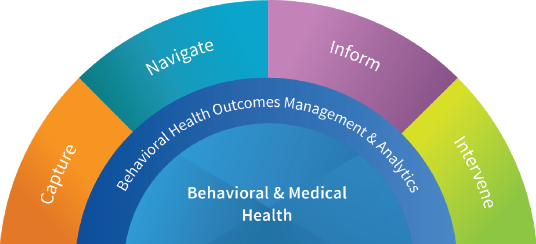Wayne, Pennsylvania based behavioral health technology company Polaris Health Directions, (Polaris) and and the new MD Anderson Cancer Center at Cooper (MD Anderson Cooper) based on the Cooper Health Sciences Campus in Camden, New Jersey, adjacent to the Cooper Plaza/Lanning Square neighborhood, have signed a memorandum of understanding to collaborate on an integrated medical-behavioral health pilot project, using Apple Inc.’s new Apple Watch to capture behavioral data that could affect courses of treatment and outcomes for breast cancer patients.
Photo Caption: A 38mm Apple Watch Sport with a pink strap — to be worn by breast cancer patients in a planned Polaris Health Directions-MD Anderson Cancer Center at Cooper pilot project to capture behavioral data that could affect the courses and outcomes of their treatments.
The partnership combines MD Anderson Cooper’s oncology expertise with Polaris’s extensive experience in behavioral health science and technological innovation. The project will leverage Polaris’s Polestar behavioral health outcomes management (BHOM) platform with an Apple Watch based data-collection-and-analytics platform to provide meaningful, actionable results from monitoring and reporting on a patients expected response to treatment.
Polaris Health Directions has almost decades of focused experience supported by more than $13 million in research grants from the National Institutes of Health in partnership with preeminent universities and hospital systems. The company was founded by Dr. Grant Grissom, Dr. Ken Howard and Martin Nankin in 1997. Dr. Howard was a pioneer of the movement to use data to manage and improve treatment outcomes, and his vision became the impetus driving Polaris, and an early manifestation of a data-oriented movement that is now transforming health care.
Dr. Howard became internationally recognized for his foundational research in mental health treatment outcomes, including the Dose and Phase models of psychotherapy and the derivation of the breakthrough Expected Treatment Response (ETR) curve, which is incorporated into the Polaris Polestar Platform today.
Polestar is a secure behavioral health outcomes management platform that captures and reports behavioral health insights flexibly in your environment, while fully integrating with existing systems and workflows.
Lightweight and easy-to-implement, Polestar is claimed to be the first predictive analytics engine able to dynamically generate action-ready and relevant behavioral health insights. Polestar is committed to making behavioral health outcomes management a routine part of the patient experience across specialties, including oncology, addiction, womens’ health and primary care.
Polestar traditionally has collected, interpreted, and transformed patient self-reported behavioral health data to deliver real-time actionable insights upon which evidence-based decisions can be provides to each stakeholder — patients, caregivers, clinicians, nurses and navigators, and directors, and “crosses the aisle” by delivering behavioral health insights across medical specialties and the care continuum within an environment that is lean, easy-to-implement and intuitive.
Polestar is now moving into a new era of collecting and compiling actionable data that can inform and enhance proactive patient care. The key is Polestar’s smart technology, which is continuously learning from new behavioral and medical health data, and as its database grows, Polestar’s predictive analytics capabilities are sharpened and improved.
“Our integrated BHOM platform has been helping to improve overall outcomes in patients throughout the U.S. via browsers and iPads. Through this breast cancer pilot, we hope to see even better patient outcomes with the addition of the Apple Watch,” says Polaris Labs science director Tina Harralson, Ph.D.
“Via our secure Polestar platform, behavioral data captured through the Apple Watch will combine with medical data from the patients electronic health records within the Cooper health system and population health data,” Dr. Harralson explains, adding that data monitores and recorded will include treatment side effects, sleep information, physical activity levels, patient mood, and other inputs. Advanced analytics applied to this mix will yield meaningful and actionable insights for patients and their care teams as treatment progresses.
Cooper University Health Care, the clinical campus of Cooper Medical School of Rowan University, is the leading provider of health services to Southern New Jersey. Cooper has been a vital institution in Camden for 125 years. In the past decade, Cooper has greatly expanded its facilities and services in Camden and throughout South Jersey. With more than 700 physicians in more than 75 specialties, the Cooper network currently serves more than half a million patients a year. The MD Anderson Cancer Center at Cooper opened In October 2013, occupying a new, state-of- the-art, $100 million, four-story, 103,050 sq. ft. comprehensive cancer center on Cooper’s Health Sciences Campus in Camden to expand access to outstanding cancer care for residents of southern New Jersey and beyond.
Created in a partnership between Cooper University Healthcare and the University of Texas MD Anderson Cancer Center at Houston, the state-of-the-art Cooper facility is located at Two Cooper Plaza on Haddon Avenue in Camden, New Jersey, an offers expanded programs and services in an environment that fosters a multidisciplinary team approach to medicine. In this dynamic environment, cancer specialists from various medical disciplines (medical oncology, radiation oncology, surgical oncology, gynecologic oncology and urology) conduct concurrent, complementary clinical sessions, fostering professional interaction and collaboration among a full range of supportive care services including genetic testing and counseling, nutrition counseling, social work services, physical rehabilitation, complementary medicine therapies and behavioral health support — all under one roof.
In addition to an advanced clinical environment, the cancer center features a two-story open lobby with cascading natural light, creating a welcoming environment for patients and their families. A scenic, outdoor Tranquility Garden provides patients and families with a retreat to relax in a calm and peaceful environment. Health education, outreach and screening programs will be available on site to help build a healthier community.
With multiple locations, including comprehensive cancer centers in Camden and Voorhees, N.J., the partnership offers patients from across the region convenient access to advanced cancer services. MD Anderson at Cooper is also home to the most advanced diagnostic and imaging technology available, including two linear accelerators, high-dose-rate brachytherapy, PET/CT imaging, exam and procedure rooms, treatment areas and a bright, modern chemotherapy infusion suite.
The new MD Anderson Cancer Center at Cooper has broadened access to clinical trials and research through its affiliation with the Cooper Medical School of Rowan University and its new partnership with The University of Texas MD Anderson Cancer Center.
In a healthcare setting, art can also be used as part of the healing process, and with that in mind, the new MD Anderson Cancer Center at Cooper incorporates more than 100 pieces of original art created by 71 New Jersey artists. The works range in subject matter from landscapes and still life to abstracts in a variety of mediums including oil on canvas, watercolors, screen printing, acrylic on wood, giclée and photography among others to create each original piece. To view and/or download the MD Anderson Cancer Center at Cooper Art & Healing book, click here.
Dr. Tina Harralson, also currently on the faculty at the Thomas Jefferson School of Medicine, holds a Ph.D. in Psychology from the University of Tennessee, and obtained a National Heart Lung Blood Institute post-doctoral fellowship in Behavioral Medicine from Duke University Medical Center. At Polaris she leads the design of behavioral health outcomes and clinical research studies focused on disease prevention and symptom management in hospital, primary care and community settings, is responsible for scientific content of Polaris’s Polestar Platform, and acts as the company’s National Institutes of Health liaison.
“The impact of the integration of behavioral health in cancer care is significant. A positive frame of mind can help a patient through all phases of diagnosis and treatment,” says Dr. Generosa Grana, MD, FACP, director of the MD Anderson Cancer Center at Cooper and head of the division of hematology/medical oncology at Cooper University Hospital.
“Patient engagement is a critical factor in successful treatment plans,” Dr. Grana observes. “We expect using the Apple Watch will help increase engagement and collect data that ultimately allows us to further refine treatment plans.”
Dr. Grana obseres that Polaris and Cooper’s oncology team have been research partners for almost a decade and have collaborated on six studies related to behavioral health with funding from the National Institutes of Health. If results of this pilot with Apple Watch prove promising, the partn
ership will pursue a National Cancer Institute research grant for a full-scale breast cancer project.
She also notes that MD Anderson Coopers’ director of behavioral medicine, Cori McMahon, Psy.D., will be medical project lead, working with Polaris on the breast cancer pilot.
Polaris will underwrite the cost of the devices to be used as a data gathering and recording  medium (Apple Watch Sport 38mm models with pink straps) and development of the app, and will be responsible for configuration, scientific content design, deployment, monitoring, and support for the wearable platform.
medium (Apple Watch Sport 38mm models with pink straps) and development of the app, and will be responsible for configuration, scientific content design, deployment, monitoring, and support for the wearable platform.
MD Anderson Cooper will select a group of breast cancer patients in active treatment, provide personnel and support, and consult on product design and usability within the health network, as well as within patients’ non-institutional settings. Their health professionals will review the data captured and provide patient support based on the analysis of the data.
The project will also be subjected to review and ultimate approval by the Cooper Institutional Review Board, and with the latter’s support board, MD Anderson Cooper and Polaris will be able to jointly publish project findings, at intervals to be determined.
Sources:
Polaris Health Directions
MD Anderson Cancer Center at Cooper
Cooper University Health Care
Apple
Image Credits:
Polaris Health Directions
MD Anderson Cancer Center at Cooper
Cooper University Health Care
Apple



